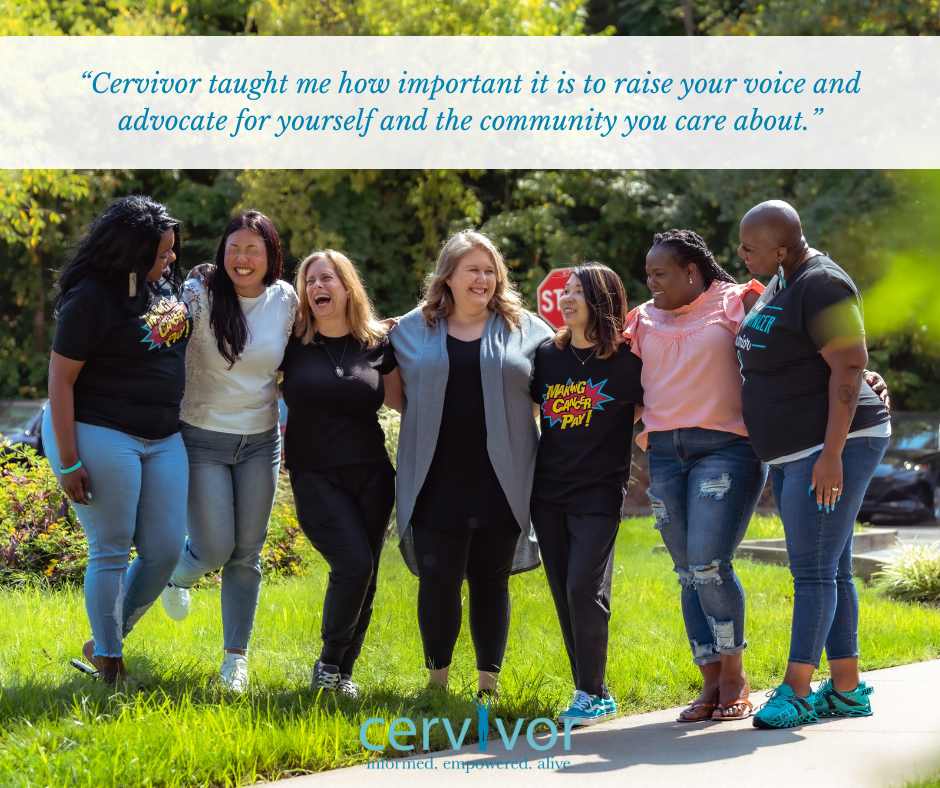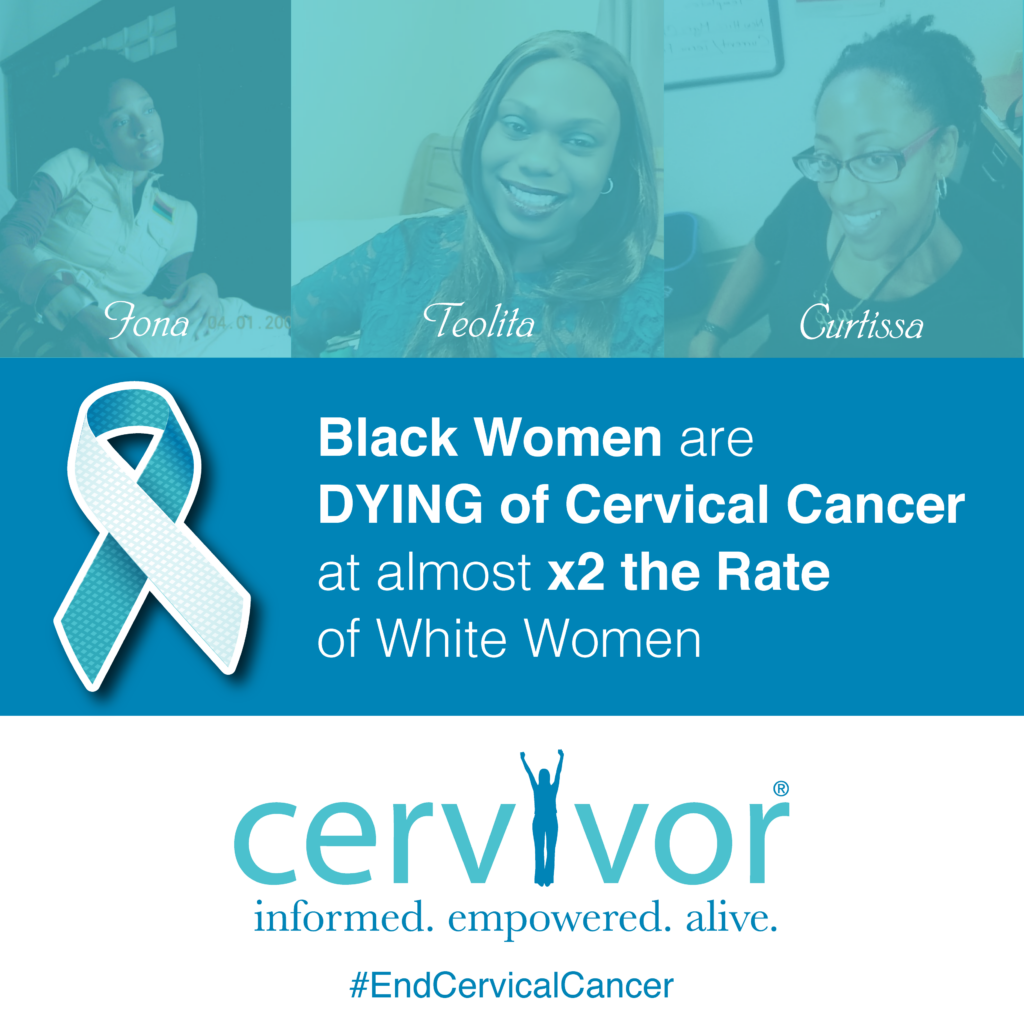As we closed out National Cancer Survivors Month in June, Cervivor launched its own Patient Advocacy Month in July serving as a critical initiative that fuels our mission to end cervical cancer. This dedicated month highlights the significance of patient advocacy and empowers survivors, thrivers, and community supporters to join forces in the mission to end this preventable disease.

Patient advocacy is the backbone of the Cervivor organization. It’s the passion and dedication to ensuring that patients’ voices are heard, their needs are met, and their rights are respected. It’s about creating a platform for patients and survivors to share their stories, receive support, and access necessary resources. Patient advocacy is the catalyst for change, driving policy reforms, research advancements, and community engagement.
Patient advocacy is vital because it:
- Humanizes the Statistics: Behind every cervical cancer diagnosis, there’s a face, a story, and a family. Patient advocacy puts a personal touch on the numbers, reminding us that every life and every story matters.
- Breaks Down Barriers: Advocacy helps bridge gaps in healthcare access, education, and support, ensuring that no one faces cervical cancer alone.
- Drives Progress: By amplifying patient voices, we push for innovative research, improved treatment options, and evidence-based policies.
- Cultivates Community: Patient advocacy builds a network of patients, survivors, thrivers, and supporters, creating a safe space for connection, healing, education, and empowerment.
This Patient Advocacy Month, we invite you to:
- Share Your Story: Write, post, or video-share your experience with cervical cancer or your support for the cause.
- Wear Teal and White: Show your solidarity by donning teal and white attire, accessories, or ribbons. Bonus points if you join us on Tuesdays throughout the month (or year). Use hashtags #Cervivor #CervicalCancer #TealandWhiteTuesday.
- Get Involved: Participate in local events, fundraisers, or awareness campaigns.
- Fundraise or Donate: Support Cervivor’s mission and programs, helping us amplify patient voices and create a cervical cancer-free future.
This month, we’ll rise as a collective force, ensuring that every individual affected by cervical cancer receives the support, resources, and care they deserve. Join us in this critical effort, and let’s make a difference – one voice at a time.
Get involved today and help us create a future where no one faces cervical cancer alone!



